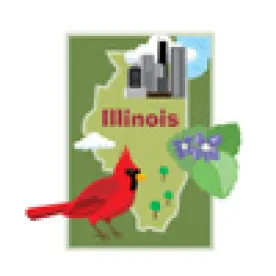On March 20, 2020, Illinois joined California, New York, and Pennsylvania in issuing a sweeping closure order to contain the spread of COVID-19. Illinois Governor J.B. Pritzker issued Executive Order 2020-10, Executive Order in Response to COVID-19 (COVID-19 Executive Order No. 8), directing “all individuals currently living within the State of Illinois . . . to stay at home” except as necessary for “Essential Activities, Essential Government Functions, or to operate Essential Businesses and Operations.”
The order requires that businesses, other than those defined as essential businesses and operations, cease all but minimum basic operations by March 21, 2020, at 5:00 p.m. Under the order, “minimum basic operations” include activities required to maintain the value of inventory, ensure the safety of facilities and equipment, process payroll/benefits, and facilitate the ability of employees to work remotely.
The order also limits traveling. Essential travel under the order includes travel related to the below exemptions, to care for family, return to residence from outside the jurisdiction, and to receive materials for distance learning or meals from educational institutions.
Exempt from the order are businesses meeting the definition of “essential businesses and operations,” which are discussed in more detail below.
Essential Businesses and Operations
The Illinois order excludes a long and detailed list of businesses from the order to cease business operations and shelter-in-place. It broadly defines “Essential Businesses and Operations” to include:
- Stores that sell groceries and medicine, including stores selling non-grocery products, and products necessary for maintaining safety, sanitation, and essential business operations.
- Food, beverage, and cannabis production and agriculture, including businesses within the entire supply chain of food cultivation, manufacturing, marketing, and distribution. It also includes entities that provide food and shelter to animals, including animal rescues, kennels, and adoption centers.
- Certain charitable organizations, including charities that provide food, shelter, services, and other necessities of life for economically disadvantaged or otherwise needy individuals, individuals who need assistance as a result of this emergency, and people with disabilities.
- Media.
- Gas stations and businesses needed for transportation, including auto-supply and repair facilities, along with bicycle shops.
- Financial institutions, including banks, currency exchanges, and consumer lenders.
- Hardware and supply stores.
- Critical trades.
- Mail, post, shipping, logistics, delivery, and pick-up services, including post offices and other business that provide shipping and delivery services, along with businesses that deliver groceries and other goods or services to consumers.
- Educational institutions for purposes only of facilitating distance learning or performing critical research.
- Laundry services.
- Restaurants for consumption off-premises for delivery, curb-side pickup, or drive through.
- Businesses related to work-from-home supplies, including businesses that sell, manufacture, or supply products needed to work from home.
- Business related to supplies for essential businesses and operations, including businesses that sell, manufacture, or supply to essential business operations the following: information technology (IT) equipment, hardware, food, cleaning supplies, and other materials or equipment. This also includes firearm and ammunition suppliers and retailers for purposes of safety and security.
- Transportation, including airlines, taxis, and other transportation providers, ride-sharing companies, and vehicle rental companies.
- Home based care and services, including caregivers for adults, seniors, and people with developmental disabilities.
- Residential facilities and shelters for people with developmental disabilities, substances abuse disorders, and/or mental illness.
- Professional service, including legal, accounting, insurance, real estate, appraisal, and title services.
- Day care centers granted an emergency license pursuant to Title 89, Section 407.400 of the Illinois Administrative Code for children of employees required to work under this order.
- Manufacture, distribution, and supply chain for critical products and industries, including manufacturing companies, distributors, and supply chain companies producing and supplying essential products and services in and for industries such as pharmaceutical, technology, biotechnology, healthcare, chemicals and sanitization, waste pickup and disposal, agriculture, food and beverage, transportation, energy, steel and steel products, petroleum and fuel, mining, construction, national defense, communications, as well as products used by other Essential Businesses and Operations.
- Critical labor union functions, including the maintenance of health and welfare funds and checking on the well-being and safety of members.
- Hotels and motels to the extent they are used for lodging and delivery or carry-out food services.
- Funeral services.
The order also designates healthcare, human services, essential infrastructure, and essential government operations as essential.
Healthcare and Public Health Operations
Section 7 of the order allows individuals to leave home to work for or obtain services through Healthcare and Public Health Operations. Healthcare and Public Health Operations are defined broadly to include any entity involved in the manufacture, supply, and/or delivery of healthcare services. Examples include, but are not limited to:
- hospitals and doctors’ offices;
- pharmacies;
- biotechnology companies;
- organizations collecting blood, plasma, or platelets;
- licensed medical cannabis dispensaries and cultivation centers;
- reproductive health care providers;
- home health care service providers;
- eye care facilities; and
- manufacturers of medical and personal protective equipment (PPE).
Human Services Operations
Section 8 of the order allows individuals to leave home to work or obtain services at any Human Services Operations, including any providers funded by the Illinois Department of Human Services, Department of Children and Family Services, or Medicaid. The order broadly defines Human Services Operations to avoid impact to the delivery of human services. Examples include, but are not limited to:
- long-term care facilities;
- entities licensed pursuant to the Child Care Act (with exceptions);
- residential settings or shelters;
- transitional facilities;
- development centers;
- adoption agencies; and
- businesses that provide necessities to economically disadvantaged individuals and those with disabilities or who are “otherwise needy.”
Essential Infrastructure
Section 9 of the order allows individuals to leave home to provide services or perform work necessary to operate, maintain, and repair Essential Infrastructure. “Essential Infrastructure” is defined broadly and includes, but is not limited to:
- food production, distribution, and sale;
- construction;
- building management and maintenance;
- airport operations;
- oil and biofuel refining;
- cybersecurity operations; and
- internet, video, and telecommunications systems.
Essential Governmental Functions
The order broadly defines “Essential Government Functions” as all services provided by government bodies needed to ensure the continuing operation of the government agencies or to provide for or support the health, safety, and welfare of the public, including contractors. The order allows a government body to determine its Essential Government Functions and the employees needed to perform those functions. Additionally, the order specifically exempts:
- first responders;
- emergency dispatchers;
- court personnel;
- law enforcement and corrections personnel;
- hazardous responders;
- child protection and child welfare personnel;
- housing and shelter personnel;
- military; and
- government employees working for or to support Essential Businesses and Operations.
Proactive Measures All Operating Businesses Must Take
The order also requires that all businesses take proactive measures to ensure compliance with social distancing requirements, including, where possible:
- Designating six-foot distances with signage or tape;
- Having sanitization products readily available for customers and employees;
- Maintaining separate operating ours for elderly and vulnerable customers; and
- Posting online whether a facility is open and how to best reach the facility.
Given the breadth of the exemptions provided under Governor Pritzker’s order, many businesses will be able to continue to operate. Businesses outside the exemptions listed in the order will need to act quickly to ensure they are able to comply with the order’s requirement that only “Minimum Basic Operations” are performed beginning at 5:00 p.m. on March 21, 2020.







 />i
/>i

